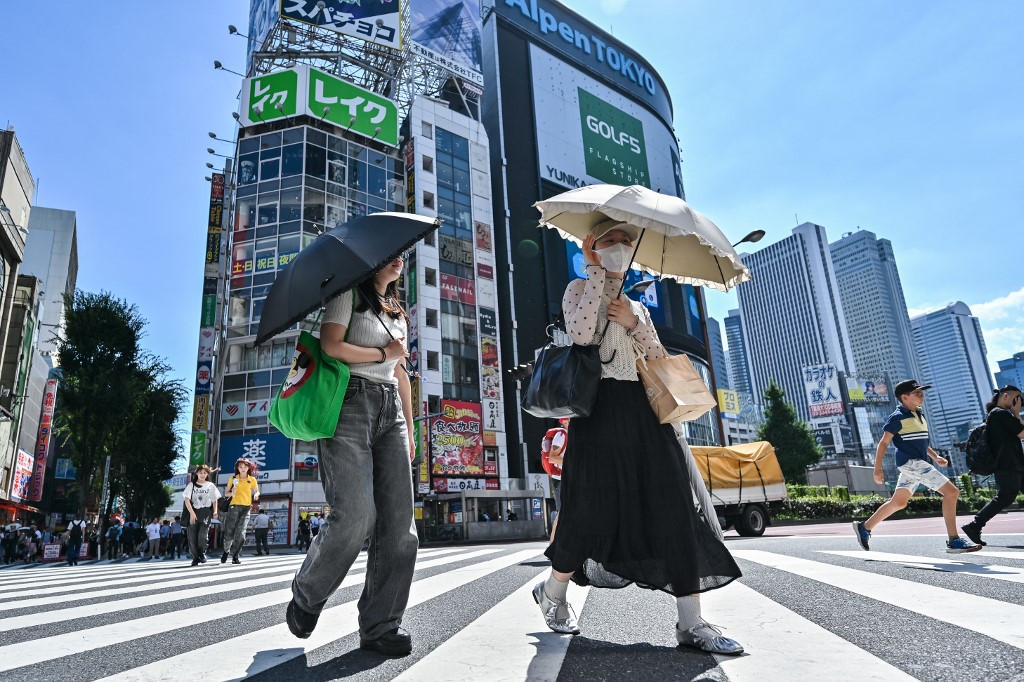Popular Reads
Top Results
Can't find what you're looking for?
View all search resultsPopular Reads
Top Results
Can't find what you're looking for?
View all search resultsJapan sweats through hottest July on record
The average temperature in July was up a record 2.89 degrees Celcius from the 1991-2020 average for the month, the Japan Meteorological Agency said on Friday.
Change text size
Gift Premium Articles
to Anyone
J
apan sweltered through its hottest July since records began in 1898, the weather agency has reported, warning of further "severe heat" in the month ahead.
Heatwaves are becoming more intense and frequent the world over because of human-caused climate change, scientists say, and Japan is no exception.
The average temperature in July was up a record 2.89 degrees Celcius from the 1991-2020 average for the month, the Japan Meteorological Agency said on Friday. It was the third year in a row of record-breaking average temperatures for July, it said.
On July 30, Japan experienced its highest recorded temperature, a sizzling 41.2 degrees Celsius in the western region of Hyogo.
"The next month is expected to continue to bring severe heat throughout the country," the weather agency said.
Precipitation in July was low over wide areas of Japan, with northern regions facing the Sea of Japan experiencing record low rainfall, it added.
The rainy season ended about three weeks earlier than usual in western regions of Japan, another record.
Experts warn Japan's beloved cherry trees are blooming earlier due to the warmer climate or sometimes not fully blossoming because autumns and winters are not cold enough to trigger flowering.
The famous snowcap of Mount Fuji was absent for the longest recorded period last year, not appearing until early November, compared with the average of early October.










